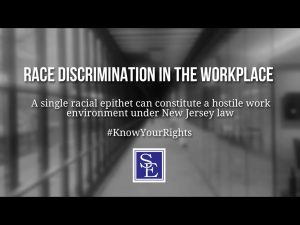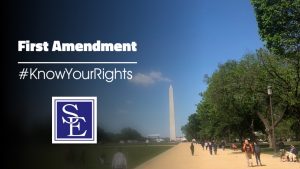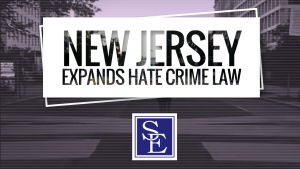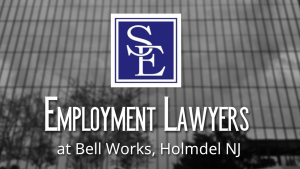In January, during a television news interview, then President Donald Trump said about the novel coronavirus, “It’s one person coming in from China.” That one remark, seemingly a purely geographical description of the virus’ origin, became the starting point from which our former President attempted to shift blame from his doorstep to China’s for mounting deaths, unemployment, shuttered businesses, food and housing insecurity and widespread panic. By convincing his supporters that our country’s pandemic response was actually Americans being forced to fight a war against an invisible Chinese invader, Trump caused a drastic shift in our political climate that resulted in Asian Americans becoming targets of hate crimes, harassment and discrimination.
 Can one person’s words, even if made publicly, really cause an entire race of people to suffer abuse and harassment? In short, yes; harassment or much worse. All we need to do to know that is to revisit the history of Nazi Germany, the Yugoslav Wars of the 1990s, the Rwandan genocide in 1994, and the American response to the Japanese after World War II. Xenophobic rhetoric, especially when propagated by a political leader, can absolutely lead to hate and discrimination and in the worst cases, extreme violence. After the September 11, 2001 terrorist attacks, the Equal Employment Opportunity Commission (EEOC) tracked the number of bias complaints filed by Arab, Muslim, Middle Eastern, South Asian and Sikh workers in the U.S. and saw a 250% increase in the wake of 9/11. This drastic response occurred despite then President George W. Bush urging people not to discriminate.
Can one person’s words, even if made publicly, really cause an entire race of people to suffer abuse and harassment? In short, yes; harassment or much worse. All we need to do to know that is to revisit the history of Nazi Germany, the Yugoslav Wars of the 1990s, the Rwandan genocide in 1994, and the American response to the Japanese after World War II. Xenophobic rhetoric, especially when propagated by a political leader, can absolutely lead to hate and discrimination and in the worst cases, extreme violence. After the September 11, 2001 terrorist attacks, the Equal Employment Opportunity Commission (EEOC) tracked the number of bias complaints filed by Arab, Muslim, Middle Eastern, South Asian and Sikh workers in the U.S. and saw a 250% increase in the wake of 9/11. This drastic response occurred despite then President George W. Bush urging people not to discriminate.
In contrast, consider Trump’s narrative around the coronavirus. In April 2020, at a press briefing, Trump linked the unfolding pandemic to his conservative immigration policy: “Therefore, in order to protect American workers, I will be issuing a temporary suspension of immigration into the United States”. In May 2020, as the pandemic worsened on U.S. soil and Trump was taken to task for his perceived nonchalance around the virus, he responded, “Intelligence has just reported to me that I was correct, and that they did NOT bring up the Corona Virus subject matter until late into January, just prior to my banning China from the U.S.” In a tweet that same month, “Great reviews on our handling of Covid 19, sometimes referred to as the China Virus.” In July 2020, as the country approached 4 million cases of Covid-19, unemployment was rising, and growing numbers of citizens were becoming food or housing insecure, Trump tweeted, “We are United in our effort to defeat the Invisible China Virus, and many people say that it is Patriotic to wear a face mask when you can’t socially distance. There is nobody more Patriotic than me, your favorite President!”Later that month, “You will never hear this on the Fake News concerning the China Virus, but by comparison to most other countries, who are suffering greatly, we are doing very well – and we have done things that few other countries could have done!” Remembering Herman Cain during a White House briefing after his death from Covid-19 last year, Trump said “he passed away from the thing called the China virus.” In August 2020, as the U.S. reached 6 million cases of Covid-19, Trump referred to the virus publicly as “the China virus” at least another 4 times, including during a virtual rally in Nevada when he said, “I mobilized the largest response since World War II to fight the China virus and we are really doing well. Our numbers are excellent, really really good, and hopefully, we’re rounding the final turn on that disaster given to us by China.” As U.S. deaths passed 200,000 in September 2020, Trump linked the coronavirus to China a dozen more times, often by using wartime analogies and imagery to emphasize his patriotism and to cast the virus as a hostile foreigner. During rallies in North Carolina, Nevada, Michigan and Florida, he referred to it as “the invisible enemy” and made repeated references to defeating “the China virus.” During a rally in North Carolina, he stated “We will end the pandemic from China. We will end our — our plague from China.”
 New Jersey Employment Lawyers Blog
New Jersey Employment Lawyers Blog





